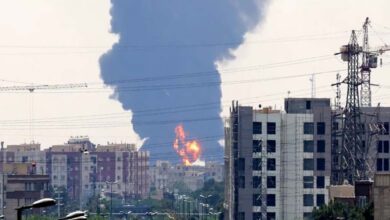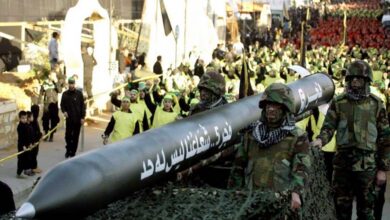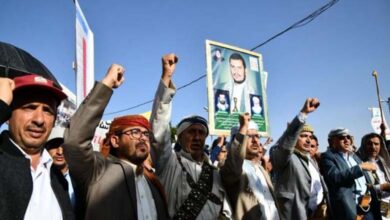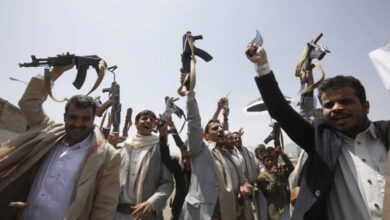Israel avoids total war in response to Hezbollah
Response options range from a limited attack on infrastructure in Lebanon, such as bridges, power stations, and ports, to hitting Hezbollah's weapon depots or targeting senior leaders of the group.
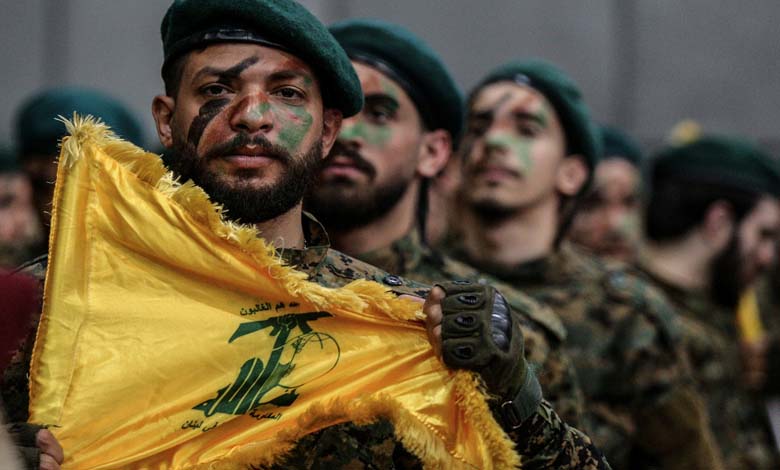
Two Israeli officials said on Monday that Israel wants to harm the Lebanese Hezbollah group but does not wish to drag the Middle East into a full-scale war, as Lebanon braces for an Israeli response after a rocket attack killed 12 children and teenagers in the Israeli-occupied Golan Heights.
Two other Israeli officials said the Jewish state is preparing for the possibility of a few days of fighting following Saturday’s rocket attack on a sports field in a Druze village.
The four officials, including a senior defense official and a diplomatic source, spoke on condition of anonymity and provided no further details on Israel’s plans for retaliation.
The diplomatic source said, “The assessment is that the response will not lead to a full-scale war,” adding, “That would not be in our interest at this stage.”
Israel and the United States have accused the Lebanese Hezbollah of being responsible for the attack, which the Iran-allied group has denied.
The attack has heightened fears that cautious tension could develop into more dangerous escalation, prompting international calls for both sides to exercise restraint. Israel’s security cabinet on Sunday authorized Prime Minister Benjamin Netanyahu‘s government and Defense Minister Yoav Galant to decide on the “manner and timing” of the response to the rocket attack on the town of Majdal Shams in the Golan Heights.
The “Yedioth Ahronoth” newspaper reported, citing unidentified officials, that the response would be “limited but significant.”
The report indicated that response options range from a limited but “visually impressive” attack on infrastructure such as bridges, power stations, and ports, to hitting Hezbollah‘s weapon depots or targeting its senior leaders.
In a statement issued by his office on Monday after visiting Majdal Shams, Netanyahu said, “The State of Israel will not allow and cannot allow this to pass. Our response is coming and it will be harsh.”
Druze protesters jeered at the Israeli Prime Minister upon his arrival in the town in the occupied Syrian Golan Heights, shouting “Murderer… Get out of here” and “This man will not enter here.”
The fighting between Israel and Hezbollah since the outbreak of the Gaza war is the worst since their 2006 war.
Israeli Finance Minister Bezalel Smotrich on Monday called for a war “to destroy Hezbollah and reoccupy southern Lebanon, to restore security to the northern residents,” according to him.
He added, “The people of Israel are ready for this; they see with their own eyes the results of the escape and withdrawal” of Israeli forces in recent years.
He continued, “It started in Oslo, then the escape from Lebanon and Gush Katif (settlements in the northern Gaza Strip from which Israel withdrew in 2005), and the idea that it is possible to gather behind walls and fences and detection devices and rely on international guarantees.”
The White House said on Monday it is “confident” that a wider war between Israel and Hezbollah can be avoided despite the deadly rocket barrage in the occupied Golan Heights that killed 12 children.
National Security Council spokesman John Kirby said on a call with reporters, “No one wants a wider war, and I am confident that we will be able to avoid such an outcome.”
The U.S. State Department said Secretary Antony Blinken emphasized the importance of avoiding an escalation of the conflict during a phone call on Monday with Israeli President Isaac Herzog.
The two sides discussed efforts to reach a diplomatic solution allowing citizens on both sides of the border to return to their homes, as well as efforts to reach a ceasefire in the Gaza Strip and the release of hostages held there.
The United Nations peacekeeping force in southern Lebanon (UNIFIL) said it had intensified contacts with Israel and Lebanese authorities to calm the tension.
UN force spokesman Andrea Tenenti said, “No one wants a wider conflict, but a miscalculation could lead to that. There is still room for a diplomatic solution.”


